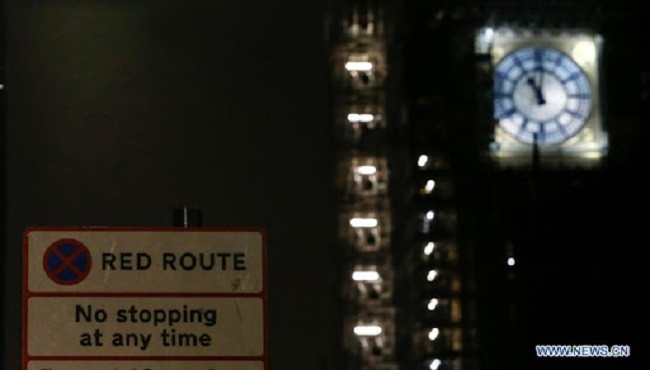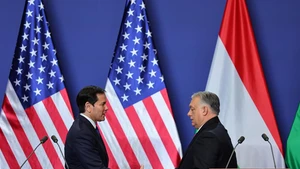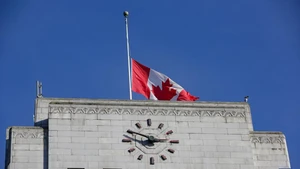In an earlier message, British Prime Minister Boris Johnson urged Britain to seize the moment as the country embarks on a new journey as an independent global trading nation.
"The destiny of this great country now resides firmly in our hands. We take on this duty with a sense of purpose and with the interests of the British public at the heart of everything we do," he said.
"11 p.m. (2300 GMT) on 31 December marks a new beginning in our country's history and a new relationship with the EU as their biggest ally. This moment is finally upon us and now is the time to seize it."
Also on Thursday, Britain's Queen Elizabeth II gave Royal assent to a new law spelling out Britain's future relationship with the EU, after the bill was approved in both the House of Commons (lower house of the British Parliament) and the House of Lords (upper house).
However, some major changes are still taking place from 2300 GMT regarding rules on travel, immigration, commerce and security, among others.
The free movement of people between Britain and the EU countries has ended, replaced in Britain by a "points-based" immigration system. Britons who want to stay in most of the EU for more than 90 days in any 180-day period will need a visa.
British police have lost instant access to EU-wide databases on criminal records, fingerprints and wanted persons.
Meanwhile, concerns remain over disruptions in ports like Dover due to border checks and new customs rules.
Rajneesh Narula, the John H. Dunning Chair of International Business Regulation at the Henley Business School, University of Reading, has warned that there could be difficult months ahead as many large issues are left out of the current deal, which will add uncertainties to Britain-EU future relations.
Most notably, the trade deal did little for the services sector, which makes up 80 percent of the British economy.
Although Britain ended its membership of the EU on Jan. 31, 2020, it has followed EU rules during a transition period which expired at 2300 GMT on Thursday.
The EU and Britain announced on Dec. 24 that they had reached an agreement that will govern their trade and security relationship starting from Jan. 1, 2021.
The deal, which came after nine months of arduous negotiations between Britain and the EU, is the biggest bilateral trade deal signed by either side, covering trade worth around GBP668 billion (US$913 billion).
The EU is Britain's largest trading partner. Britain is the EU's third-largest trading partner in goods, after the United States and China.
















